National Recording Registry

The National Recording Registry is a list of sound recordings that "are culturally, historically, or aesthetically important, and/or inform or reflect life in the United States." The registry was established by the National Recording Preservation Act of 2000,[1] which created the National Recording Preservation Board, whose members are appointed by the Librarian of Congress. The recordings preserved in the United States National Recording Registry form a registry of recordings selected yearly by the National Recording Preservation Board for preservation in the Library of Congress.[2]
The legislative intent of the National Recording Preservation Act of 2000 was to develop a national program to guard America's sound recording heritage. The Act resulted in the formations of the National Recording Registry, The National Recording Preservation Board and a fund-raising foundation to aid their efforts.[3] The act established the Registry specifically for the purpose of maintaining and preserving sound recordings and collections of sound recordings that are culturally, historically, or aesthetically significant.[1] Beginning in 2002, the National Recording Preservation Board began selecting nominated recordings each year to be preserved.
The first four yearly lists included 50 selections. However, since 2006, 25 recordings have been selected annually. Thus, a total of 425 recordings have been preserved in the Registry as of 2014. Each calendar year, public nominations are accepted for inclusion in that year's list of selections to be announced the following spring. Nominations are made in the following categories:
- Blues
- Broadway/Musical Theatre/Soundtrack
- Cajun/Zydeco/"Swamp"
- Children's recordings
- Choral
- Classical
- Comedy/Novelty
- Country/Bluegrass
- Documentary/Broadcast/Spoken Word
- Environmental
- Field
- Folk/Ethnic
- Gospel/Spiritual
- Heavy Metal
- Jazz
- Latin
- Pop (pre-1955)
- Pop (post-1955)
- R&B
- Radio
- Rap/Hip-hop
- Rock
- Technology
Each yearly list has often included a few recordings that have also been selected for inclusion in the holdings of the National Archives' audiovisual collection. Those recordings on the Library of Congress' National Recording Registry that are of a political nature will tend to overlap with the audiovisual collection of the National Archives. The list shows overlapping items and whether the National Archives has an original or a copy of the recording.
Selection criteria
The criteria for selection are as follows:[4]
- Recordings selected for the National Recording Registry are those that are culturally, historically or aesthetically important, and/or inform or reflect life in the United States.
- For the purposes of recording selection, "sound recordings" are defined as works that result from the fixation of a series of musical, spoken, or other sounds, but not including the sound component of a moving image work, unless it is available as an autonomous sound recording or is the only extant component of the work.
- Recordings may be a single item or group of related items; published or unpublished; and may contain music, non-music, spoken word, or broadcast sound.
- Recordings will not be considered for inclusion into the National Recording Registry if no copy of the recording exists.
- No recording should be denied inclusion into the National Recording Registry because that recording has already been preserved.
- No recording is eligible for inclusion into the National Recording Registry until ten years after the recording's creation.
2002
On January 27, 2003, the following 50 selections were announced by the National Recording Preservation Board.[5]



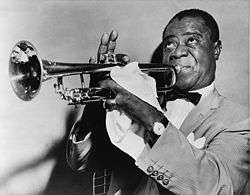



2003



.png)
In March 2004, the following 50 selections were made by the National Recording Preservation Board.[7]
2004
In April 2005, the following 50 selections were made by the National Recording Preservation Board.[8]

.jpg)

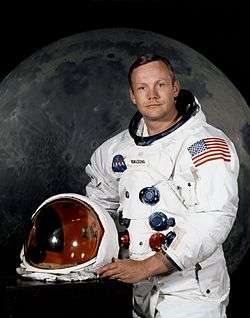

2005
In April 2006, the following 50 selections were made by the National Recording Preservation Board.[9]



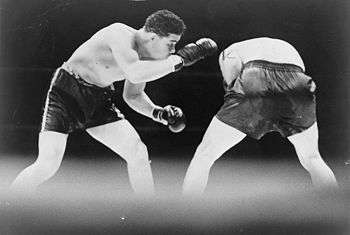


| Recording or collection | Performer or agent | Year | National Archives |
|---|---|---|---|
| "Canzone del Porter" from Martha (von Flotow) |
Edouard de Reszke | 1903 | |
| "Listen to the Lambs" | Hampton Quartette; recorded by Natalie Curtis Burlin |
1917 | |
| "Over There" | Nora Bayes | 1917 | |
| "Crazy Blues" | Mamie Smith | 1920 | |
| "My Man" and "Second Hand Rose" | Fanny Brice | 1921 | |
| "Ory's Creole Trombone" | Kid Ory | June 1922 | |
| Second inauguration of Calvin Coolidge | Calvin Coolidge | March 4, 1925 | |
| "Tanec Pid Werbamy/ Dance Under the Willows" |
Pawlo Humeniuk | 1926 | |
| "Singin' the Blues" | Frankie Trumbauer and His Orchestra with Bix Beiderbecke |
1927 | |
| First official transatlantic telephone conversation |
W.S. Gifford and Sir Evelyn P. Murray | January 7, 1927 | original |
| "El Manisero" ("The Peanut Vendor") (Two versions) |
Rita Montaner, vocal with orchestra; Don Azpiazu and His Havana Casino orchestra |
1927; 1930 |
|
| Light's Golden Jubilee Celebration | October 21, 1929 | copy | |
| Beethoven's Egmont Overture, Op. 84 | Modesto High School Band | 1930 | |
| Show Boat | Helen Morgan, Paul Robeson, James Melton and others; Victor Young, conductor; Louis Alter, piano |
1932 | |
| "Wabash Cannonball" | Roy Acuff | 1936 | |
| "One O'Clock Jump" | Count Basie and His Orchestra | 1937 | |
| The Fall of the City (Columbia Workshop) | Orson Welles, narrator; Burgess Meredith, Paul Stewart |
April 11, 1937 | copy |
| The Adventures of Robin Hood (Erich Wolfgang Korngold) |
May 11, 1938 | ||
| Joe Louis-Max Schmeling fight | Clem McCarthy, announcer | June 22, 1938 | |
| John the Revelator | Golden Gate Quartet | 1938 | |
| "Adagio for Strings" | Arturo Toscanini, conductor; NBC Symphony |
November 5, 1938 | |
| Command Performance, show No. 21 |
Bob Hope, master of ceremonies | July 7, 1942 | copy |
| "Straighten Up and Fly Right" | Nat "King" Cole | 1943 | |
| The Fred Allen Show | Fred Allen | October 7, 1945 | |
| "Jole Blon (Jolie Blonde)" | Harry Choates | 1946 | |
| Tubby the Tuba | Victor Jory | 1946 | |
| "Move On Up a Little Higher" | Mahalia Jackson | 1948 | |
| Anthology of American Folk Music | Edited by Harry Smith | 1952 | |
| "Schooner Bradley" | Pat Bonner | 1952–60 | |
| Damnation of Faust | Boston Symphony Orchestra with the Harvard Glee Club and Radcliffe Choral Society |
1954 | |
| "Blueberry Hill" | Fats Domino | 1956 | |
| Variations for Orchestra Representative of the Louisville Orchestra First Edition Recordings series |
Louisville Orchestra | 1956 | |
| "Whole Lotta Shakin' Goin On" | Jerry Lee Lewis | 1957 | |
| "That'll Be the Day" | Buddy Holly and The Crickets | 1957 | |
| Poeme Electronique | Edgard Varèse | 1958 | |
| Time Out | The Dave Brubeck Quartet | 1959 | |
| Studs Terkel interview with James Baldwin Representative of the Studs Terkel Collection at the Chicago History Museum (formerly the Chicago Historical Society) |
Studs Terkel, James Baldwin | September 29, 1962 | |
| United States Military Academy address | William Faulkner | April 19–20, 1962 | |
| "Dancing in the Street" | Martha and the Vandellas | 1964 | |
| Live at the Regal | B.B. King | 1965 | |
| Are You Experienced | The Jimi Hendrix Experience | 1967 | |
| We're Only in It for the Money | Frank Zappa and the Mothers of Invention | 1968 | |
| Switched-On Bach | Wendy Carlos | 1968 | |
| "Oh Happy Day" | Edwin Hawkins Singers | 1969 | |
| Don't Crush That Dwarf, Hand Me the Pliers | Firesign Theatre | 1970 | |
| "The Revolution Will Not Be Televised" | Gil Scott-Heron | 1970 | |
| Will the Circle Be Unbroken | Nitty Gritty Dirt Band | 1972 | |
| The old foghorn, Kewaunee, Wisconsin | Recorded by James A. Lipsky | 1972 | |
| Songs in the Key of Life | Stevie Wonder | 1976 | |
| Daydream Nation | Sonic Youth | 1988 |
2006
On March 6, 2007, the following 25 selections were made by the National Recording Preservation Board.[10]
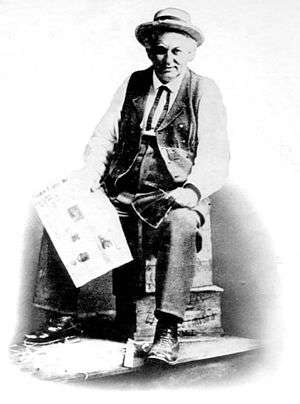


| Recording or collection | Performer or agent | Year | National Archives |
|---|---|---|---|
| "Uncle Josh and the Insurance Agent" | Cal Stewart | 1904 | |
| "Il Mio Tesoro" | John McCormack; orchestra conducted by Walter Rogers |
1916 | |
| National Defense Test | General John J. Pershing | September 12, 1924 | copy |
| "Black Bottom Stomp" | Jelly Roll Morton's Red Hot Peppers | 1926 | |
| "Wildwood Flower" | Carter Family | 1928 | |
| "Pony Blues" | Charley Patton | 1929 | |
| "You're the Top" | Cole Porter | 1934 | |
| The Lone Ranger Episode: "The Osage Bank Robbery" |
Earle Graser, John Todd | December 17, 1937 | |
| "Day of Infamy" speech to Congress | Franklin D. Roosevelt | December 8, 1941 | copy |
| Native Brazilian music recorded under the supervision of Leopold Stokowski |
Pixinguinha, Donga, Cartola, Jararaca, Ratinho and José Espinguela |
1942 | |
| "Peace in the Valley" | Red Foley and the Sunshine Boys | 1951 | |
| "Polonaise in A Major" ("Polonaise militaire"), Op. 40, No. 1, by Frédéric Chopin |
Artur Rubinstein | 1952 | |
| "Blue Suede Shoes" | Carl Perkins | 1955 | |
| Interviews with William "Billy" Bell (Canadian-Irish northwoods work songs) |
Recorded by Edward D. "Sandy" Ives | 1956 | |
| Howl | Allen Ginsberg | 1959 | |
| The Button-Down Mind of Bob Newhart | Bob Newhart | 1960 | |
| "Be My Baby" | The Ronettes | 1963 | |
| We Shall Overcome | Pete Seeger | 1963 | |
| "A Change Is Gonna Come" | Sam Cooke | 1964 | |
| "(I Can't Get No) Satisfaction" | The Rolling Stones | 1965 | |
| The Velvet Underground & Nico | The Velvet Underground and Nico | 1967 | |
| The Eighty-Six Years of Eubie Blake | Eubie Blake | 1969 | |
| Burnin' | The Wailers | 1973 | |
| Live in Japan | Sarah Vaughan | 1973 | |
| Graceland | Paul Simon | 1986 |
2007




On May 14, 2008, the following 25 selections were made by the National Recording Preservation Board.[11][12]
| Recording or collection | Performer or agent | Year | National Archives |
|---|---|---|---|
| The first transatlantic broadcast | March 14, 1925 | ||
| "Allons a Lafayette" | Joe Falcon | 1928 | |
| "Casta Diva" from Bellini's Norma | Rosa Ponselle and the Metropolitan Opera Orchestra and Chorus, conducted by Giulio Setti | December 31, 1928 and January 30, 1929 | |
| "If I Could Hear My Mother Pray Again" | Thomas A. Dorsey | 1934 | |
| "Sweet Lorraine" | Art Tatum | 1940 | |
| Fibber McGee and Molly Fibber's closet opens for the first time |
Jim Jordan, Marian Jordan | March 4, 1940 | |
| Wings Over Jordan | May 10, 1942 | ||
| Fiorello H. La Guardia reading the comics | Fiorello H. La Guardia | 1945 | |
| "Call It Stormy Monday (But Tuesday Is Just as Bad)" | T-Bone Walker | 1947 | |
| Speech at the 1948 Democratic National Convention | Harry S. Truman | July 15, 1948 | |
| The Jazz Scene | Various artists, produced by Norman Granz | 1949 | |
| "It Wasn't God Who Made Honky Tonk Angels" | Kitty Wells | 1952 | |
| My Fair Lady | Original cast | 1956 | |
| Navajo Shootingway Ceremony Field Recordings | Recorded by David McAllester | 1957–1958 | |
| "Freight Train" and Other North Carolina Folk Songs and Tunes | Elizabeth Cotten | 1959 | |
| United States Marine Band Recordings for the National Cultural Center | 1963 | ||
| "Oh, Pretty Woman" | Roy Orbison | 1964 | |
| "The Tracks of My Tears" | Smokey Robinson and the Miracles | 1965 | |
| You'll Sing a Song and I'll Sing a Song | Ella Jenkins | 1966 | |
| Music from the Morning of the World | Various artists, recorded by David Lewiston | 1966 | |
| For the Roses | Joni Mitchell | 1972 | |
| Head Hunters | Herbie Hancock | 1973 | |
| Ronald Reagan radio broadcasts | Ronald Reagan | 1976–79 | |
| Murmurs of Earth Disc prepared for the Voyager spacecraft |
1977 | ||
| Thriller | Michael Jackson | 1982 |
2008

.jpg)


On June 10, 2009, the following 25 selections were made by the National Recording Preservation Board.[13]
2009
On June 23, 2010, the following 25 selections were made by the National Recording Preservation Board.[14]






| Recording or collection | Performer or agent | Year | National Archives |
|---|---|---|---|
| "Fon der Choope (From the Wedding)" | Abe Elenkrig's Yidishe Orchestra | April 4, 1913 | |
| "Canal Street Blues" | King Oliver's Creole Jazz Band | April 5, 1923 | |
| Tristan und Isolde, NBC broadcast | Metropolitan Opera, featuring Kirsten Flagstad and Lauritz Melchior | March 9, 1935 | |
| "When You Wish Upon a Star" | Cliff Edwards | 1938 (recorded) / 1940 (released) | |
| America's Town Meeting of the Air: "Should Our Ships Convoy Materials to England?" | George V. Denny (host); Reinhold Niebuhr, John Flynn (guests) | May 8, 1941 | |
| The Library of Congress Marine Corps Combat Field Recording Collection, Second Battle of Guam. | 1944 | ||
| "Evangeline Special" and "Love Bridge Waltz" | Iry LeJeune | 1948 | |
| The Little Engine that Could | Paul Wing, narrator | 1949 | |
| Leon Metcalf Collection of recordings of the First People of western Washington State | Leon Metcalf | 1950–1954 | |
| "Tutti Frutti" | Little Richard | 1955 | |
| "Smokestack Lightning" | Howlin' Wolf | 1956 | |
| Gypsy | Original cast recording | 1959 | |
| The Complete Village Vanguard Recordings | Bill Evans Trio | June 25, 1961 | |
| "Daisy Bell (Bicycle Built for Two)" | Max Mathews | 1961 | |
| I Started Out as a Child | Bill Cosby | 1964 | |
| Azucar Pa' Ti | Eddie Palmieri | 1965 | |
| Today! | Mississippi John Hurt | 1966 | |
| "Silver Apples of the Moon" | Morton Subotnick | 1967 | |
| Soul Folk in Action | The Staple Singers | 1968 | |
| The Band | The Band | 1969 | |
| "Coal Miner's Daughter" | Loretta Lynn | 1970 | |
| Red Headed Stranger | Willie Nelson | 1975 | |
| Horses | Patti Smith | 1975 | |
| "Radio Free Europe" original Hib-Tone single |
R.E.M. | 1981 | |
| "Dear Mama" | 2Pac | 1995 |
2010


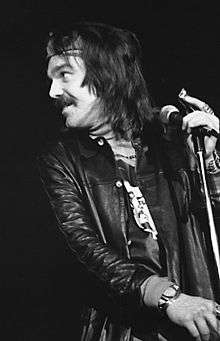

On April 6, 2011, the following 25 selections were announced.[15]
2011
On May 23, 2012, the following 25 selections were made by the National Recording Preservation Board.[14]

_-_1944_-_foto_van_Vechten2.jpg)

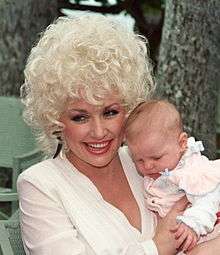

| Recording or collection | Performer or agent | Year | National Archives |
|---|---|---|---|
| Edison Talking Doll cylinder | November 1888 | ||
| "Come Down Ma Evenin' Star" | Lillian Russell | 1912 | |
| "Ten Cents A Dance" | Ruth Etting | 1930 | |
| Voices from the Days of Slavery | Various | 1932–1975 | |
| "I Want to Be a Cowboy's Sweetheart" | Patsy Montana | 1935 | |
| "Fascinating Rhythm" | Sol Hoopii | 1938 | |
| "Artistry In Rhythm" | Stan Kenton | 1943 | |
| New York Philharmonic debut of Leonard Bernstein | Leonard Bernstein | November 14, 1943 | |
| Hottest Women's Band of the 1940s | International Sweethearts of Rhythm | 1944–1946 (released 1984) | |
| "Hula Medley" | Gabby Pahinui | 1947 | |
| Indians for Indians (Hour) | Don Whistler | March 25, 1947 | |
| I Can Hear It Now: 1933-1945 | Edward R. Murrow and Fred W. Friendly | 1948 | |
| "Let's Go Out to the Programs" | The Dixie Hummingbirds | 1953 | |
| Also Sprach Zarathustra | Fritz Reiner and the Chicago Symphony Orchestra | 1954, 1958 | |
| "Bo Diddley" with "I'm a Man" | Bo Diddley | 1955 | |
| "Green Onions" | Booker T. & The M.G.'s | 1962 | |
| A Charlie Brown Christmas | Vince Guaraldi Trio | 1965 | |
| Forever Changes | Love | 1967 | |
| The Continental Harmony: The Gregg Smith Singers Perform Music of William Billings | The Gregg Smith Singers | 1969 | |
| "Coat of Many Colors" | Dolly Parton | 1971 | |
| Mothership Connection | Parliament | 1975 | |
| Barton Hall Concert at Cornell University | Grateful Dead | 1977 | |
| "I Feel Love" | Donna Summer | 1977 | |
| "Rapper's Delight" | Sugarhill Gang | 1979 | |
| Purple Rain | Prince and The Revolution | 1984 |
2012
On March 21, 2013, the following 25 selections were announced.[15]
2013
On April 2, 2014, the following 25 selections were announced.[16][17]
| Recording or collection | Performer or agent | Year | National Archives |
|---|---|---|---|
| "The Laughing Song" | George W. Johnson | c.1896 | |
| "They Didn’t Believe Me" | Harry Macdonough and Alice Green | 1915 | |
| "Brother, Can You Spare a Dime?" (Two Versions) |
Bing Crosby and Rudy Vallee |
1932 | |
| Recordings of Kwakwaka’wakw Chief Dan Cranmer | Franz Boas and George Herzog | 1938 | |
| "Were You There" | Roland Hayes | 1940 | |
| "Sammy Goes to the Army" | "The Goldbergs" | July 9, 1942 | |
| "Caldonia" | Louis Jordan and His Tympany Five | 1945 | |
| "Dust My Broom" | Elmore James | 1951 | |
| A Night of Birdland (Vols. 1 & 2) | Art Blakey | 1954 | |
| "When I Stop Dreaming" | The Louvin Brothers | 1955 | |
| "Cathy's Clown" | The Everly Brothers | 1960 | |
| Texas Sharecropper and Songster | Mance Lipscomb | 1960 | |
| The First Family | Vaughn Meader | 1962 | |
| Lawrence Ritter’s Interviews with Baseball Pioneers of the Late 19th and Early 20th Century | Lawrence Ritter | 1962-1966 | |
| Presidential Recordings of Lyndon B. Johnson | Lyndon B. Johnson | 1963-1969 | |
| Carnegie Hall Concert with Buck Owens and His Buckaroos | Buck Owens and His Buckaroos | 1966 | |
| "Fortunate Son" | Creedence Clearwater Revival | 1969 | |
| Shaft | Isaac Hayes | 1971 | |
| Only Visiting This Planet | Larry Norman | 1972 | |
| Celia & Johnny | Celia Cruz and Johnny Pacheco | 1974 | |
| Copland Conducts Copland: Appalachian Spring | Aaron Copland | 1974 | |
| Heart Like a Wheel | Linda Ronstadt | 1974 | |
| Sweeney Todd: The Demon Barber of Fleet Street Original Cast Recording |
Original Cast | 1979 | |
| The Joshua Tree | U2 | 1987 | |
| "Hallelujah" | Jeff Buckley | 1994 |
2014
On March 25, 2015, the following 25 selections were announced.[18]
Statistics
As of 2014, the oldest recording on the list is Edouard-Leon Scott de Martinville's Phonautograms which date back to 1853. The most recent is Fanfare for the Uncommon Woman by Joan Tower, performed by the Colorado Symphony Orchestra under the direction of Marin Alsop, which was released in 1999.[19]
Selections vary widely in duration. Both the early Edison recordings and the instrumental "Rumble" by Link Wray clock in at under three minutes; the Edison Talking Doll cylinder is only 17 seconds long. Meanwhile Georg Solti's recording of Wagner's complete Ring Cycle is approximately 15 hours in duration and Alexander Scourby's recitation of the King James Bible is over 80 hours in length.[19]
See also
Notes
- A The original 25 recordings from July 24, 1933 and July 28, 1934 are preserved at the Roosevelt Library in Hyde Park, New York.[20]
References
- 1 2 "Current Registry". The Library of Congress. November 3, 2006. Retrieved February 9, 2007.
- ↑ "Current Registry". The Library of Congress. November 3, 2006. Retrieved February 26, 2007.
- ↑ "Overview". The Library of Congress. November 16, 2006. Retrieved February 26, 2007.
- ↑ "National Recording Registry Criteria". The Library of Congress. November 3, 2006. Retrieved February 9, 2007.
- 1 2 3 "The National Recording Registry 2002". The Library of Congress. December 6, 2006. Retrieved February 9, 2007.
- ↑ "Edison cylinders chosen for National Recording Registry". Edison National Historic Site. National Park Service. December 22, 2004. Archived from the original on February 7, 2007. Retrieved March 7, 2007.
- 1 2 3 "The National Recording Registry 2003". The Library of Congress. October 25, 2006. Retrieved February 9, 2007.
- 1 2 3 "The National Recording Registry 2004". The Library of Congress. October 25, 2006. Retrieved February 9, 2007.
- ↑ "The National Recording Registry 2005". The Library of Congress. October 25, 2006. Retrieved February 9, 2007.
- ↑ "The National Recording Registry 2006". The Library of Congress. March 6, 2007. Retrieved March 7, 2007.
- ↑ Logue, Susan (May 15, 2008). "Jackson, Reagan Added to National Recording Registry". VOA News (Voice of America). Retrieved January 3, 2009.
- ↑ "The National Recording Registry 2007". The Library of Congress. May 14, 2008. Retrieved August 9, 2008.
- ↑ Metzler, Natasha (June 9, 2009). "New National Recording Registry entries announced". Associated Press, San Fransciso Chronicle. Retrieved June 10, 2009.
- 1 2 Registry Choices 2009: The National Recording Preservation Board (Library of Congress). Loc.gov. Retrieved on October 27, 2010.
- 1 2 Loc.gov
- ↑ "Hallelujah, the 2013 National Recording Registry Reaches 400". Retrieved 2 April 2014.
- ↑ "Library of Congress Beefs Up Recordings Collection, but Watch Out for That Barber". Retrieved 2 April 2014.
- ↑ http://www.loc.gov/today/pr/2015/15-041.html
- 1 2 "Full Registry". The Library of Congress. November 3, 2006. Retrieved December 16, 2009.
- ↑ "National Archives Sound Recordings Named to National Recording Registry". U.S. Newswire. January 23, 2003. Retrieved February 24, 2007.
External links
- National Recording Preservation Board
- Full National Recording Registry
- NPR All Things Considered – series spotlighting selections from the Registry
|




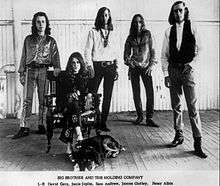

.jpg)
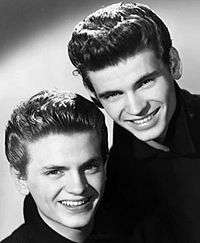
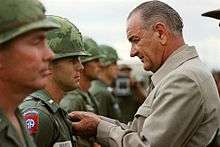


.jpg)




